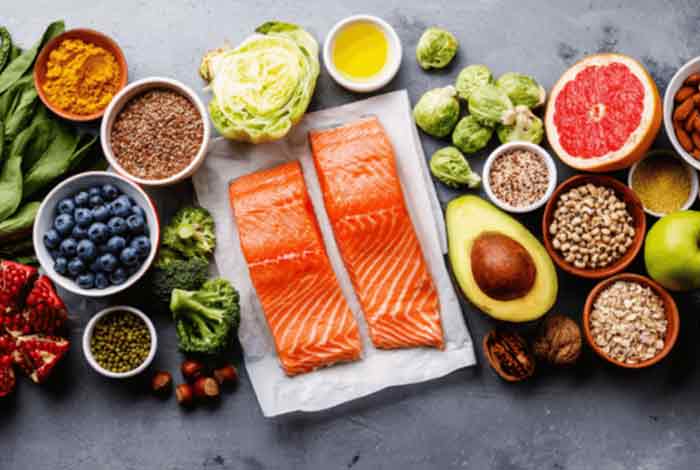
Mediterranean diet is making headlines every other week. The reason might surprise you. The researchers are discovering various reasons to encourage people for implementing this lifestyle. It can possibly make you live longer, shed excess pounds and gain energy, all at the same time. Read on to know everything about this delicious, colorful, and extremely easy to follow dietary modification.
What Is the Mediterranean Diet?
The Mediterranean diet plan basically focuses on the colorful foods. This diet includes vegetables, whole grains, fruits, nuts, legumes, and seeds. Lean meat, dairy and sea-food are also allowed in this diet, but they are more like the side dishes.
According to experts, the best part of this diet is that it allows various kinds of foods, ensuring that a person meets all his or her nutritional requirements. This diet fortunately does not ban any particular food.
Mediterranean diet is based on the dietary patterns of over 22 countries that border around the Mediterranean Sea. These countries are within Asia, Europe, and Africa. It is more of a lifestyle change. The Mediterranean diet however advocates eating mindfully, slowing down, living life without letting food take control your life, eating until you feel full and finally going for a walk.
It is quite easy to buy all the recommended foods in the Mediterranean diet. Experts advocate this diet owing to its versatility and multitude of health benefits it provides, such as weight loss, reduced risk for heart attack or stroke. The foods in this diet can be easily swapped if you want to.
Health Benefits of the Mediterranean Diet
A lot of research has been done and ongoing to discover various health benefits of the Mediterranean diet. The following are the health benefits you can expect by following a Mediterranean diet:
- Reduces risk of developing cardiovascular diseases.
- Reduces risk of colon cancer, breast cancer and prostate cancer.
- Helps in staying active and agile as it reduces the risk of frailty.
- Reduces inflammation in the body and improves metabolic health.
- Improves cognitive function and physical strength.
- Helps a woman to conceive if she has problems in conceiving.
- Reduces the risk of developing various age-related health conditions like learning and memory issues.
Starting with the Mediterranean Diet
Let’s see what a typical day meal will look like if you begin with a Mediterranean diet
- Breakfast: Oatmeal topped with chopped walnuts and strawberries (a handful of both). This meal provides enough protein, fiber, complex carbohydrates, omega -3 fatty acids and antioxidants.
- Lunch: Greek salad with green peppers, cucumber, tomatoes, feta cheese and lentil soup. This meal provides nutrient rich vegetables, fiber, calcium, fatty acids and Vitamin B.
- Snack: Greek or plain yogurt sprinkled with berries and cinnamon. This snack provides calcium, protein, vitamin C, quercetin and anthocyanins. Cinnamon also helps in fighting obesity.
- Dinner: Five ounces of broccoli, salmon, and rice pilaf as a side dish. This meal provides adequate amount of nutrients and minerals, proteins, fiber and omega-3 fatty acids.
- Dessert: Fruit tart or something that is fruit-based.You can swap the above-listed foods with other allowed foods too.
Mediterranean Diet Food List

Let’s see which foods are allowed when on a Mediterranean diet
Produce:
- Your favorite fruits and vegetables of different colors (blueberries, oranges, spinach, tomatoes, green apples, cauliflower, and beets)
- Fresh herbs like parsley, basil, and cilantro
- Garlic, onions, and shallots
- Hummus (made from chickpeas)
Meats:
- Wild salmon
- Chicken
- Lean pork
Diary:
- Eggs
- Parmesan cheese
- Greek or plain yogurt
Canned Foods:
- Black beans
- Lentils
- Garbanzo beans
- Canned tomatoes
Whole Grains:
- Whole grain pita bread
- Wild rice
- Ezekiel bread
- Whole-grain pasta
- Quinoa
Healthy Fats:
- Avocados
- Extra virgin olive oil
- Nuts like almonds, hazelnuts, and walnuts
- Seeds like flax seeds and chia seeds
If you are a vegetarian, you can easily replace seafood, poultry and meat with legumes and beans. Vegetarians can very easily implement this diet as it allows lots of fruits, vegetables, whole grains, nuts, and seeds.
Mediterranean diet is not essentially a low carb diet like a ketogenic diet because fruits, vegetables and grains have sufficient amount of carbohydrates. Though meat, poultry and sea food don’t have carbohydrates, but if you want to reduce your carbohydrate intake, you can limit intake of starchy vegetables like corn pumpkin, peas, butternut squash, parsnips, and plantains. Instead you can consume non-starchy vegetables such as leafy greens, broccoli, tomatoes, peppers, cucumber, cauliflower, and green beans.
While if you have gluten-sensitivity or Celiac Disease, you can consume gluten free foods such as rice, quinoa, oats, corn, buckwheat and wild rice. Vegetables, fruits, lean meats, and healthy fats are naturally gluten-free. Also, in case you suffer from diabetes Mediterranean diet can help you in managing your blood glucose levels. Additionally, the lifestyle changes the Mediterranean diet recommends like eating regularly at small intervals and exercising, enhance the health benefits.
The Mediterranean diet also provides several anti-inflammatory benefits as it recommends consumption of whole foods. It also improves blood circulation and normalizes the blood pressure. People with high blood pressure are greatly benefited by implementing this diet. To reduce your cholesterol levels, you can include olive oil in your Mediterranean diet plan.
Though keto diet is extremely popular these days but Mediterranean diet and Dash Diet have been ranked higher by top nutritional experts and doctors. We would encourage you to adopt this lifestyle for leading an active and agile lifestyle. You can easily shed excess pounds and reduce risk of several cardiovascular diseases by following a Mediterranean diet.






